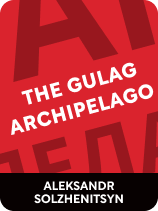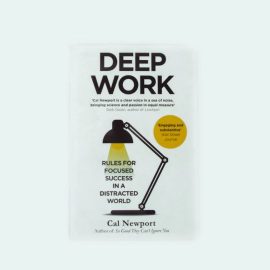

This article is an excerpt from the Shortform book guide to "The Gulag Archipelago" by Aleksandr Solzhenitsyn. Shortform has the world's best summaries and analyses of books you should be reading.
Like this article? Sign up for a free trial here.
Are you looking for The Gulag Archipelago quotes? What excerpts shed light on the book’s ideas?
The Gulag Archipelago is a work of historical nonfiction that describes life in Soviet prison labor camps, popularly known as gulags, in the USSR from the late 1910s to the mid-50s. It exposed human rights abuses by the Soviet Union to the world, counteracting decades of propaganda.
Keep reading for quotes from this landmark book by Aleksandr Solzhenitsyn.
5 Quotes From The Gulag Archipelago
We’ve collected five The Gulag Archipelago quotes and included a bit of context and explanation.
“Unlimited power in the hands of limited people always leads to cruelty.”
Once people joined State Security, it was easy for the power they wielded to go to their heads. Representatives of State Security and the police, no matter how young or inexperienced, were treated with deference by all members of society. Some used their power to settle personal grudges, such as by having romantic rivals arrested.
These recruits were quickly exposed to the kinds of abuses they were expected to participate in. They would observe their superior officers beating, torturing, robbing, and sexually assaulting prisoners and were encouraged, if not outright ordered, to participate. Compliance showed loyalty, while refusal or squeamishness was mocked or punished. Showing too much sympathy for a prisoner could get you arrested for anti-Soviet sentiment.
“A submissive sheep is a find for a wolf.”
Solzhenitsyn quotes from letters he received from a number of current and former security officers. Many were defensive about their participation in the abuse of prisoners and argued that they had no choice but to follow orders.
“The prolonged absence of any free exchange of information within a country opens up a gulf of incomprehension between whole groups of the population, between millions and millions.”
From the 1930s on, the Soviet Union had an extremely robust and powerful propaganda system, exerting near-total control over how the government was depicted in the news, radio, and television; works of literary fiction; and in education. Historical events that threatened to embarrass the government were covered up, while successes were exaggerated. Another aspect of the propaganda system was the widespread use of euphemisms or deliberate mislabeling to obscure realities.
“Ideology—that is what gives evildoing its long-sought justification and gives the evildoer the necessary steadfastness and determination.”
Soviet citizens were indoctrinated into accepting propaganda as the absolute truth, no matter how obviously it contradicted the reality of their lives.
One way the government could indoctrinate its citizens was by setting up a kind of us-versus-them mentality, wherein the Soviet Union was the bastion of morality and strength and had to be defended unquestioningly against other, more corrupt nations. Much of the Soviet Union’s national identity, particularly during the Stalinist period Solzhenitsyn focuses on, was based on the supposed dichotomy of the West and the East. This conflict was positioned as a matter of ideology.
“One man who stopped lying could bring down a tyranny.”
According to Solzhenitsyn, what would have made the biggest difference for prisoners in these cases was some form of transparency. If free citizens knew the extent of the abuses taking place in prison and the prisoners could count on their attempts at protest being recognized and publicized on the outside, they might have been able to work together to demand change. The Soviet government’s ability to control the flow of information was so significant because it kept the people ignorant of their most powerful tool of resistance—their numbers.

———End of Preview———
Like what you just read? Read the rest of the world's best book summary and analysis of Aleksandr Solzhenitsyn's "The Gulag Archipelago" at Shortform.
Here's what you'll find in our full The Gulag Archipelago summary:
- A book that was banned for exposing human rights abuses to the world
- A work of historical nonfiction that describes life in Soviet prison labor camps
- How the Soviet government used violence, paranoia, and repression to control their citizens






